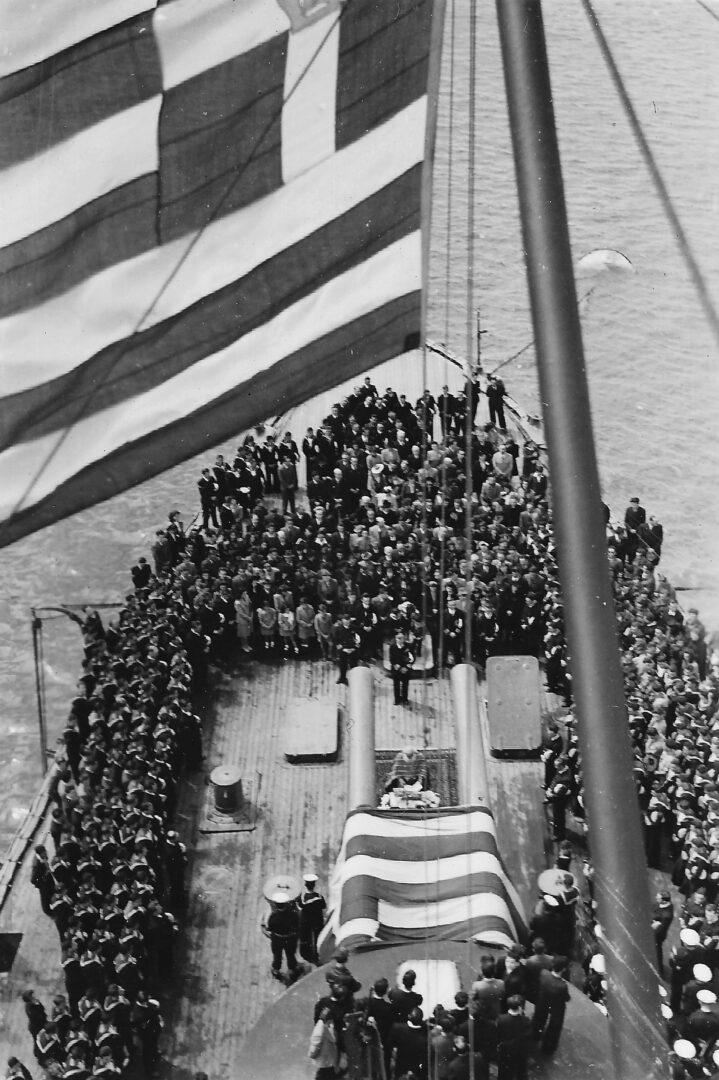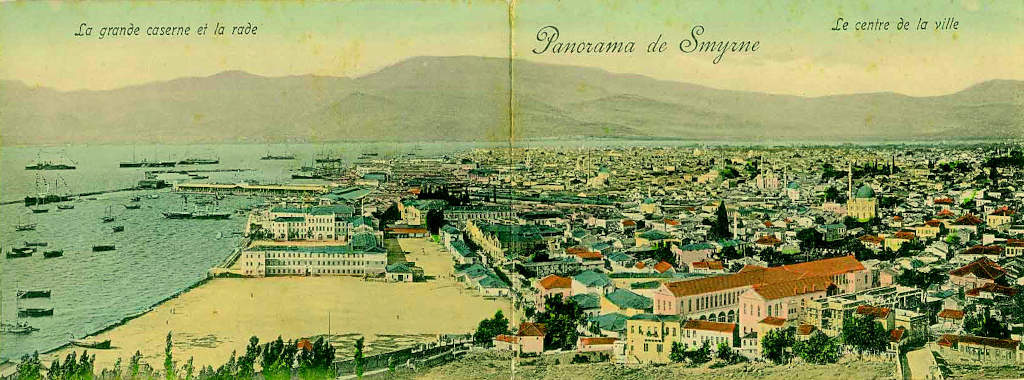The Nautical Logbook – Sailing Through the Timeline by Dimitris Balopoulos constitutes an introduction to key naval events that have marked the course of Greek history, a maritime journey through space and time. Published by the Hellenic Institute of Naval History, the book stands as a detailed record of themes from our Naval History, created with the intent to inform, to shed light on lesser-known aspects, and to inspire further research.

The book’s entries, organized by month, day, and year, span a wide range of thematic categories, including underwater archaeology, naval battles, historical figures, maritime law, naval education, notable events, maritime sites, ancient ships, mutinies and counter-movements, and shipwrecks. Among these entries, special sections such as #Sea and Art highlight the invaluable contribution of artworks and their creators in offering a visually compelling narration of history. Likewise, #Port Cities presents selected harbor towns that allow us to better understand the identity of the Greek diaspora, as well as the development of trade and the movement of people, goods, and ideas.
Reading Greece* spoke to Dimitris Balopoulos about the book and its contribution to an in-depth knowledge of the country’s naval history, as well as about the way its history is inextricably linked to the sea. Born in Piraeus, Dimitris Balopoulos is a retired Vice Admiral (Supply Corps) of the Hellenic Navy and a graduate of the Military School of Corps Officers, as well as the School of Economic Sciences at Aristotle University of Thessaloniki. He also holds a post-graduate degree in Public History from the Hellenic Open University. His research interests on which he regularly publishes include Maritime History, Modern Social and Economic History, and the intersections of memory and Public History.
Ναυτικό Ημερολόγιο – Ταξιδεύοντας στην Χρονογραμμή [Nautical Logbook – Sailing Through the Timeline] constitutes an acquaintance with maritime events that have marked the country’s history and at the same time sea voyage in space and time. Tell us a few things about the book.
First of all, I would like to thank you for your kind invitation to be part of this truly engaging discussion. The Nautical Logbook – Sailing Through the Timeline is my first published work, the result of five years of research, and with it, I sought to offer readers the opportunity to embark on a journey through the captivating world of the sea. If one were to see the book as an imaginary vessel, they might begin to understand why the element of water has long been a vital part of our national identity and, at the same time, a vehicle for power, influence, and survival throughout Greek history. That, in essence, is the Nautical Logbook: a maritime voyage through space and time, with many intermediate stops along the way – each offering insight into people, eras, atmospheres, and, most importantly, the past itself. Structured around 615 entries, spanning diverse thematic categories, the book is organized by month, date, and year – each moment anchored in its connection to the sea.

The book narrates known and lesser known events of our naval history, focusing on those micro-stories that helped form the country’s naval History, as well as on these events as public history recordings. How important are all these different narrations in forming a more in-depth knowledge of our naval history?
The question may well be asked: “Can everyone, and everything, find a place in history?” My answer is that more and more voices are indeed finding the space they rightfully deserve. Today, the sources that convey historical knowledge have multiplied, and in many ways, the “archive” of history has been reshaped and expanded. Within this renewed framework, many local histories from across Greece – as well as from the diaspora – are now being connected to the national narrative. Alongside them, micro-stories have emerged as powerful tools for deepening our understanding of the historical continuum.
Maritime history, in particular, offers fertile ground for embracing and integrating such micro-stories. Stories of shipwrights preserving a luminous shipbuilding tradition; refugees who built port cities from the ground up – with Syros and its capital, Ermoupoli, as a prime example; anonymous craftsmen who constructed the lighthouses of the modern Greek state; and migrants whose journeys shaped the rise of transoceanic shipping – these are all vital threads in the greater tapestry of our maritime legacy.

Among the book’s themes is the Sea and Art section, as works of art and their creators provide us with invaluable information, giving us an interesting visualized narrative of History. How important is the role of art or literature in the recording of the country’s naval history?
It is often said that poets write history and historians recount it – yet it is the artists who keep the collective memory alive. Through their work, they capture historic moments, carrying forward the emotions and atmosphere of an era into our present day. This visual storytelling plays a vital role in the preservation of history at large and of our maritime heritage in particular. Allow me to offer an example: a painting by Konstantinos Volanakis titled “The Inauguration of the Corinth Canal”. Anyone who lays eyes upon this canvas, included in the present volume, can immediately grasp the immense scale and difficulty of the undertaking – a striking testament to Greece’s early attempts at industrialization. A second example lies in a brief excerpt from Angelos Sikelianos’ poem “Proteus”. In just a few words, the poet evokes the magnitude of the sacrifice made by the submarine Proteus, which was lost with all hands in the Adriatic Sea on December 29th, 1940.
Since ancient times, the country’s history is inextricably linked to the sea. How does the book contribute to readers fully understanding the importance of this connection?
Most of us would agree that “in the beginning, there was the sea”. In all its forms, the sea has always encapsulated the essence of the journey – the magic of exploration, the yearning for home, and yet, also the shadow of danger and loss. For Greeks, the sea has been inextricably linked to our history through commerce and conflict alike. The sea enables the movement of people, goods, ideas, and knowledge opening paths to freedom, outwardness, and interconnectedness. The Nautical Logbook – Sailing Through the Timeline is a journey through events, people, places, and stories, some well-known, others less so, all bound by their relationship to the sea.

Greek naval history is among the rare few that can carry the reader along a near-continuous thread through time. One sails effortlessly from ancient triremes to Byzantine dromons and cargo-laden ships, then onward to the schooners and brigs of the War of Independence, before arriving at the vessels of the modern Greek state, both merchant and military, each writing their own distinct chapters in our shared maritime chronicle. What I have sought to highlight is the profound significance of these sea routes not only as means of survival, but as conduits of culture and ultimately, as foundations for the prosperity of our homeland.
*Interview by Athina Rossoglou
TAGS: LITERATURE & BOOKS | READING GREECE














